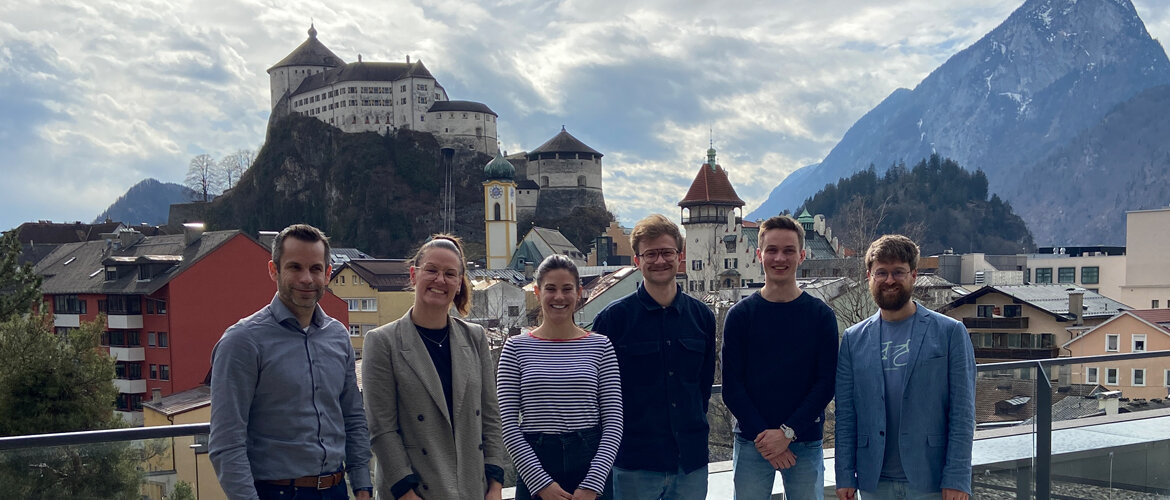Smart services expand the potential of smart energy meters
- 06.04.2023
- Practical Project

Students are further developing the range of services offered by the Kufstein municipal utilities: more digital services are helping municipal utility customers to save energy and control their own energy consumption.
As part of a practical project for the municipal utilities of Kufstein, students on the Smart Products & Solutions master's program worked on the development of innovative services in the field of energy management.
With the introduction of smart meters, customers of the Kufstein municipal utilities now have access to up-to-date data on their energy consumption. This raises the question of what additional services the municipal utilities can develop and make available to customers. Students from the master's program in Smart Products & Solutions (now: Smart Products & AI-driven Development) addressed this question as part of a practical project.
CUSTOMER TYPE ANALYSIS AS A BASIS
Due to the tense energy market situation and in view of rising energy prices, “energy saving” was chosen as the goal and placed at the center of the project. In a first step, customer segments were analyzed and defined in order to develop targeted services. Three customer types were identified: power users, standard users and skeptical users.
The power user segment describes people who, intrinsically motivated, deal with the topic of energy consumption and take measures to record and optimize their own energy consumption independently of the energy supplier. The group of skeptical users was defined by a negative basic attitude. No dedicated services were developed for either group (power users and skeptical users), since these groups have already approached the topic independently. The group of standard users represented the largest
PROPOSALS FOR SMART SERVICES
Based on initial suggestions, such as a virtual energy-saving trainer, baseline analysis, tips for photovoltaic owners and an electricity appliance analysis, the portfolio of possible services was further expanded. If, in addition to the energy data, further data is provided for analysis (e.g. heating type, electrical appliances, etc.), further information can be obtained as part of the data analysis. If, for example, it is known that an electric water heater is being used, it is possible to identify device malfunctions based on the electrical consumption data. Furthermore, it is possible to generate an energy consumption identifier. If actual values deviate from the energy consumption identifier, an automated notification can be created and triggered.
As part of the project, ideas for campaigns were also developed, e.g. energy-saving challenge, energy-saving afternoon, gamification and publications in municipal print media.
ADDED VALUE FOR STUDENTS AND CLIENTS
The practical project offered students a good opportunity to explore a highly topical issue. Based on the content of the master's program, students were able to develop smart services. During the final presentation, the results were discussed with the client and further developed.
Smart products make smart services possible. A methodical and structured approach is necessary when designing services. These skills are taught and continuously developed as part of the Master's program in Smart Products & Solutions.
We would like to take this opportunity to thank Stadtwerke Kufstein and in particular Andreas Dorn (authorized signatory, head of customer service) for the great cooperation during the practical project.
